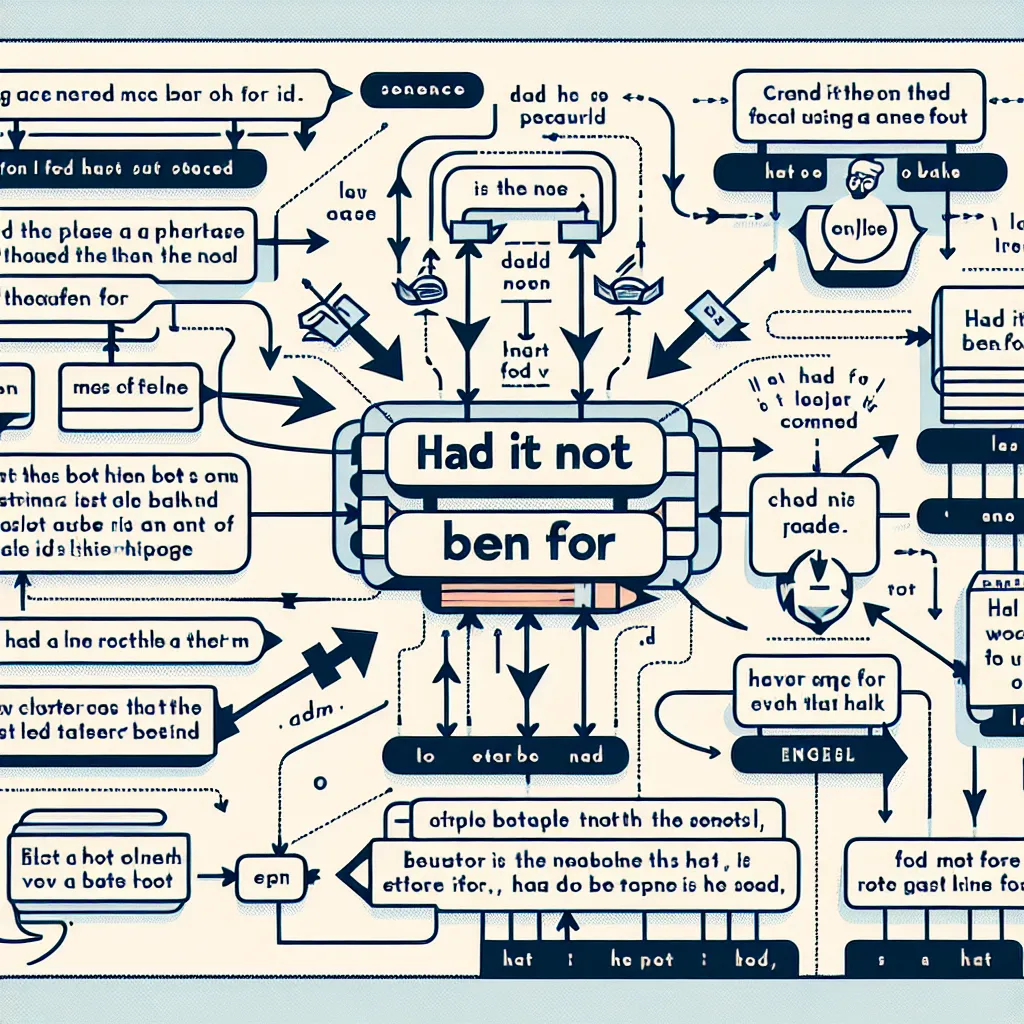The phrase “had it not been for” is a powerful grammatical structure that can elevate your English language skills, especially in the IELTS exam. This construction is used to express hypothetical situations in the past and can significantly enhance your writing and speaking abilities. Let’s delve into the intricacies of this phrase and explore how to use it effectively in your IELTS preparation.
Nội dung bài viết
Understanding “Had It Not Been For”
The phrase “had it not been for” is used to express a condition in the past that did not actually happen, but if it had not existed or occurred, the result would have been different. It’s a way of speculating about alternative past scenarios.
 Had it not been for diagram
Had it not been for diagram
Grammatical Structure
The basic structure is:
Had it not been for + noun/noun phrase, + subject + would/could/might + have + past participle
Examples:
- Had it not been for the rain, we would have gone to the beach.
- Had it not been for her quick thinking, the situation could have been much worse.
- Had it not been for my IELTS preparation, I might not have achieved such a high score.
In these examples, the bolded parts show the key elements of the structure. The first part introduces the hypothetical condition, and the second part describes the imagined result.
Using “Had It Not Been For” in IELTS Writing
Incorporating this structure in your IELTS Writing task can demonstrate a high level of grammatical control and vocabulary usage. Here’s how you can use it effectively:
In Task 2 Essays
-
Discussing historical events:
“Had it not been for the Industrial Revolution, modern society would not have developed as rapidly as it did.” -
Analyzing social issues:
“Had it not been for stricter environmental regulations, many species might have become extinct by now.” -
Evaluating personal experiences:
“Had it not been for my early exposure to diverse cultures, I would not have developed such an open-minded perspective.”
Tips for Band 7 and Above
To achieve a higher band score, try combining this structure with other complex grammatical forms:
“Had it not been for the government’s swift action in implementing lockdown measures, which were controversial at the time, the spread of the virus could have been far more devastating, potentially overwhelming the healthcare system and leading to a significantly higher death toll.”
This sentence demonstrates:
- Complex grammar (“Had it not been for”)
- Relative clause (“which were controversial at the time”)
- Modal verbs (“could have been”)
- Advanced vocabulary (“devastating”, “overwhelming”)
“Had It Not Been For” in IELTS Speaking
Using this structure in your Speaking test can impress the examiner and potentially boost your score. Here are some ways to incorporate it:
-
Part 2 (Long Turn):
“Had it not been for my grandfather’s encouragement, I might never have discovered my passion for photography.” -
Part 3 (Discussion):
Examiner: “How has technology affected education?”
You: “Well, had it not been for the rapid advancements in technology, particularly in the last decade, education would not have become as accessible as it is today. For instance, online learning platforms have revolutionized the way we acquire knowledge.”
 IELTS Speaking Test
IELTS Speaking Test
Common Mistakes to Avoid
-
Incorrect verb form:
Incorrect: “Had it not been for the traffic, I will arrive on time.”
Correct: “Had it not been for the traffic, I would have arrived on time.” -
Mixing tenses:
Incorrect: “Had it not been for his help, I didn’t finish the project.”
Correct: “Had it not been for his help, I wouldn’t have finished the project.” -
Using ‘for’ twice:
Incorrect: “Had it not been for for the rain, we would have gone out.”
Correct: “Had it not been for the rain, we would have gone out.”
Alternative Expressions
While “had it not been for” is an excellent structure, it’s good to know alternatives to avoid repetition:
- “But for”: “But for his assistance, I would have failed.”
- “If it hadn’t been for”: “If it hadn’t been for the scholarship, I couldn’t have attended university.”
- “Without”: “Without your support, this project would not have succeeded.”
Conclusion
Mastering the “had it not been for” structure can significantly enhance your IELTS performance. It allows you to express complex ideas about hypothetical past situations, demonstrating a high level of English proficiency. Remember to practice using this structure in various contexts, and don’t forget to balance it with other complex grammatical forms to showcase your full range of language skills.
To further improve, try creating your own sentences using this structure, focusing on topics commonly found in IELTS exams such as education, technology, environment, and social issues. With consistent practice, you’ll find yourself using this sophisticated structure naturally in both your writing and speaking tasks.


